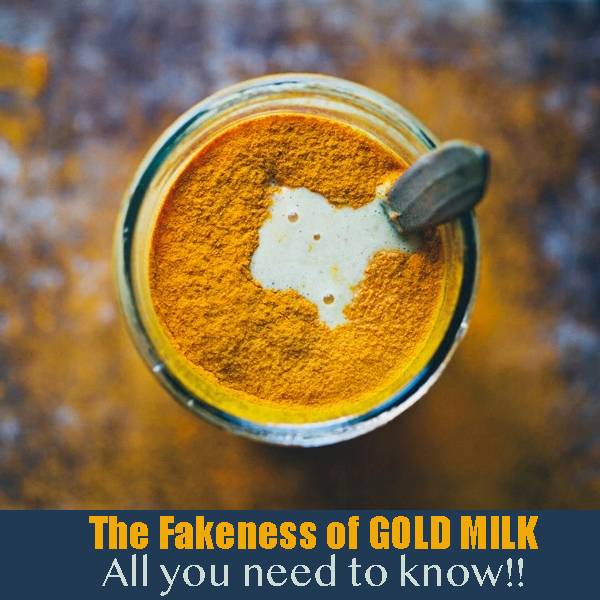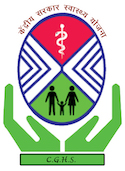How Do Doshas Cause Colitis
When it is about Ayurveda. It is all about the Doshas alone. The basic problem with many diseases is, we cannot pin-point which dosha is it, for a diseased condition. When we cannot pinpoint this, we make mistakes in selecting the right medicine and right treatment for the condition. The same happens in the case of Colitis too. Generally, when we do Ayurvedic treatment of colitis, we wander between the Doshas. Because bleeding is involved- many times people keep on treating the Pitta dosha alone. But Colitis is beyond this. Here we will try to understand- how do doshas cause colitis?
While there are many conditions that can cause inflammation of the colon. These include infections, tumors, and food sensitivities etc. Gluten sensitivity – enteropathy or celiac disease is one among these. This condition involves damage to the small intestine from a reaction to eating gluten. The reaction causes inflammation and/or intestinal tissue damage which interferes with the absorption of nutrients.
When undiagnosed and untreated for too long, however, there may be other conditions that develop within the colon itself which also cause a chronic inflammatory response in the lining of the large intestine.
In fact, this condition is popular because of a diagnostic category ‘colitis’ (inflammation of the colon). Even though it doesn’t have a standard definition. And this is still widely unrecognized by many health professionals. Those with this condition may or may not be gluten sensitive/allergic.
(Please see What is Celiac Disease)
How widespread is Colitis?
The most recent research indicates that about one person in every 150 has this type of large intestine inflammation, which for now at least seems to be distinct from celiac disease. Colitis has a bad reputation because many people diagnosed with ulcerative colitis or Crohn’s disease, live a complicated life.
Both these severe forms of intestinal inflammation – and instead of these diseases disappearing when they go gluten-free. Their symptoms seem to persist along with other nasty side-effects like malnutrition and vitamin deficiencies. The treatments prescribed by orthodox medicine can be quite harsh and involve powerful immune suppressants like steroids which may themselves cause further complications.
How does colitis occur?
The first step in developing colitis is when bad bacteria start to grow in the colon. These bacteria cause inflammation of the gut wall and irritate cells within that wall.
When this happens, the immune system responds and produces an inflammatory response from many cells including eosinophils, mast cells, basophils, and neutrophils & monocytes.
The cause of colitis is not known. But some studies have shown that one-third of patients with IBD do not have a family member with either IBD or Crohn’s disease.
The majority of the patients with IBD have no obvious genetic mutation. However, there are still some genes that may cause an individual to be more predisposed to developing IBD
Is Colitis Genetics?
Genes can influence how we respond to certain environmental triggers such as diet and infectious agents.
A study shows that children who were breastfed for prolonged periods of time had less risk of getting Crohn’s disease or colitis than those who were not breastfed at all.
Studies also found that two variations in the CARD15 gene which causes about 50% of patients diagnosed with UC and is responsible for helping protect the body from infection by bacteria. These mutations make it difficult for immune cells (macrophages) to locate bacterial infections inside the body. Without these cells, the body is less able to fight off infection and therefore more likely to develop colitis.
Viruses can also cause inflammatory bowel disease (IBD).
A bacterial infection of intestinal bacteria can also result in inflammation if someone has a weakened immune system. Treatment for both colitis & Crohn’s Disease must be specific & individualized for each patient. Avoiding foods that trigger an immune response is one of the mainstays of treatment for all types of IBD. This means certain fruits, vegetables, dairy products, and legumes may need to be avoided by a person with IBD. But diet alone will not cure inflammation or disease in all patients.
What are the symptoms of colitis?
Some signs and symptoms associated with colitis include diarrhea, abdominal pain, blood-streaked stools, weight loss, and cramping.
IBD can be categorized into 2 types: ulcerative colitis (UC) and Crohn’s Disease (CD). Both UC and CD will present with chronic inflammation however; they differ in how they affect the digestive tract. In people with UC the inflammation is limited to the innermost lining of the colon while people with CD will generally have inflammation throughout their intestines.
There is also a difference in what causes colitis for both UC and CD. Inflammation caused by UC can be triggered by foods and other substances that irritate the gut wall such as stress, certain medications, smoking, etc. However; CD can be triggered by infection from bacteria or viruses which does not appear to happen with UC
What does Ayurveda say about colitis?
Ayurveda describes an imbalance of the blood caused by improper diet, stress and lack of exercise. If these three aspects are not properly taken care of, colitis can develop as well as other diseases associated with improper functioning of the digestive tract.
How does Ayurveda describe colitis?
From an Ayurvedic viewpoint: when there is a disorder in Vata dosha, it will cause an imbalance in all three doshas creating a Vata-Pita combination which will eventually lead to disease.
Inflammation is described in Ayurveda as being the result of wind that cannot be eliminated from the body through normal channels (Vayu). When Vata dosha becomes aggravated, it results in the disturbance of other doshas as well. The changes that occur in vata will eventually cause an imbalance in all three doshas creating a Vata-Pitta combination which will eventually lead to disease. Pitta is another dosha that needs to be balanced with Kapha, but when pitta becomes aggravated it can create more aggravation in Kapha & Vata and then evoke further imbalance until the body’s natural equilibrium is restored.
When someone has colitis or inflammation anywhere below the diaphragm, Ayurveda describes this person as having a disorder in VATA DOSHA. In Ayurvedic texts, it says: “Adhana Shocham Kshaya Rogan” – Symptoms of Colitis include:
What are Vata symptoms?
Blood is said to be produced in the liver and then distributed throughout the body primarily through the veins. It is governed by Vata dosha and therefore it can be affected by any type of Vata disturbance such as irritation, irregularity, or disease. When there is a disorder in Vata dosha, this will cause an imbalance in all three doshas creating a VATA-PITTA combination which eventually leads to diseases like colitis.
What happens during inflammation? Inflammation occurs when we have abnormal changes in our blood that cause our immune systems to react & attempt to fix whatever caused this change. The longer the immune system acts upon something that it considers foreign, the more damage will occur.
Pitta in Colitis
When the blood becomes irregular, Pitta is activated to try and smooth out & balance all three doshas in order to bring about a state of equilibrium again. There are multiple factors that can cause a change in Blood such as emotions (anger causes pitta), lifestyle habits (smoking, drinking, etc.), weather, and infectious agents or toxins/poisons. When there is an invasion of bacteria into our body it can trigger the immune system to act and destroy those bacteria cells – this response creates an internal imbalance that leads to inflammation.
Inflammation consists of redness, swelling, heat, and pain; usually accompanied by excess mucus production throughout the bronchial passages and sinuses as well as slight fever. An excess of mucus can be a result of an obstruction in the colon which is caused by:
Poor diet & improper eating habits; often resulting in constipation. Overweight conditions – high cholesterol, high triglycerides, and low HDL LDL levels. Eating foods that contain dyes, preservatives, additives, sugar, and white flour products can cause toxicity within our bodies. Stress & tension. Excessive exposure to sunlight or over-exercising without proper rest or nutrition creates an imbalance within your body chemistry as well as energy flow disruption which leads to inflammation like colitis.
How does Kapha impact?
Kapha dosha becomes aggravated when there is the excess formation of phlegm in the bronchial tubes; Kapha then attempts to eliminate this excess from the body through coughing – usually the mucous is then brought up. This can lead to a blockage in the colon and triggers Kapha to try and force the excess out of the body – this results in inflammation.
Inflammation is described as redness, heat, pain & swelling with excess mucus conditions; usually accompanied by slight fever. Inflammation occurs when there are changes in blood but due to shortage or poor quality of blood caused by Vata dosha, it cannot carry nutrition into cells causing them to die (which causes further depletion). This is what causes inflammatory lesions and ulcers on your skin etc. Eventually, some condition arises that requires your immune system’s attention which leads to inflammation like colitis. You would have experienced this before yourself, for example:
Imagine you’re sitting at your desk for long periods of time and don’t move frequently, blood cannot circulate properly & this causes doshas to become misaligned. Due to the lack of proper circulation in your body system, it makes you sleepy or tired – mostly due to a depletion of Vata dosha which has caused an obstruction in the colon resulting in inflammation like colitis.
How does Vata-pitta cause?
Inflammation occurs when there is an improper distribution of air and fire (Vata) — air governs all movement within our bodies such as breathing, talking, swallowing, etc; fire means “action” these actions are controlled by Vata & pitta respectively. Pitta controls digestion, metabolism, and temperature whereas, Vata governs the excretion of waste from our body which requires movement. When there is an improper balance between blood (air) & pitta or bile (fire), inflammation can occur in the colon.
Inflammation occurs mostly when we have a poor diet consisting of refined carbohydrates, sugars, and white flour products – these foods are addictive to our system, they don’t contain nutrition for proper cell functioning which means that when you eat them you feel tired soon after and crave sugar again. Refined flour products quickly break down during digestion, but the resultant glucose enters the bloodstream rapidly which causes spikes in insulin secretion – this causes fluctuation in your blood chemistry by upsetting Vata dosha. The excessive consumption of sugary foods causes insulin levels to rise; this is associated with an increase in the production of certain compounds that promote inflammation. Sugar also contains a high content of fructose which can upset your liver, damage it and cause toxicity within the body – this disrupts pitta dosha causing colon blockages or inflammation like colitis.
If you go through the link here about Agni, things will relate more with the causative factors as discussed by modern biology- Concept of Agni in Ayurveda.
Complications of inflammation
Inflammation occurs due to poor diet & refined carbohydrates which causes fluctuations within our blood chemistry; this upsets Vata dosha and it cannot distribute oxygen correctly throughout the body system. When there is a lack of oxygen supply to tissues, these cells become starved for energy causing them to starve/die leading to diseases such as cancer (this happens eventually). Vata is already under stress as it tries its best to keep us alive & when it is constantly being disrupted due to diet, genetic defects, or environment it cannot sustain the body system further leading to an earlier death – this is why people with inflammatory diseases die at a younger age.
Inflammation occurs when there are blockages in our colon due to a lack of oxygen supply from Vata dosha; Mucus/phlegm accumulates and hence results in inflammation (this causes phlegm-typhoid ). This accumulation then blocks flow throughout the entire pathway causing more mucus than pitta to try and eliminate it. This process is repeated until finally, some condition arises that requires your immune system’s attention which results in inflammation like colitis.
The Final Words
Colitis like many other diseases is not the result of a single dosha. Every disease belongs to all three doshas. This is our limitation, many times we cannot judge the exact disturbance of Dosha. And this leads to the failure of the Ayurvedic treatment of any disease.
At Sukhayu, we assess the exact disturbance of Dosha this helps us for better understanding of the condition and helps a patient to get rid of the colitis completely.
For this, you book an appointment with Vaidya Dr. Pardeep Sharma to know about the possible imbalance of the dosha and accordingly plan your treatment.














